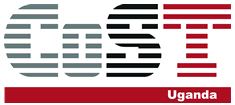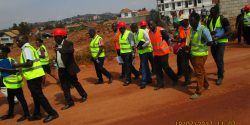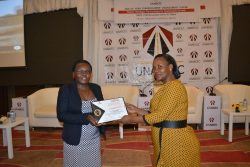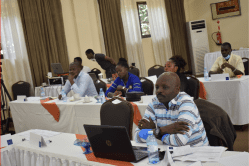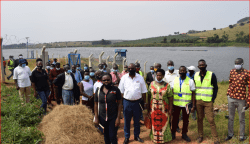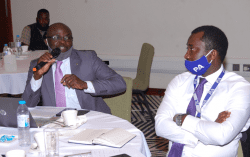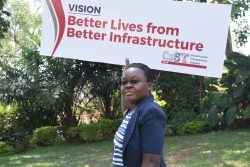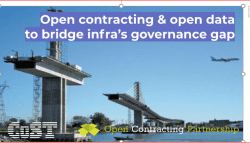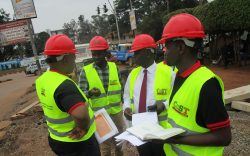
January 31, 2020 7:25 am
We would like to extend our appreciation to those who made it to the National Baraza where we launched the 3rd Assurance Report (Click to the report)
We are pleased to note that, the event was graced by the Minister of Works and Transport who is also CoST Uganda Champion, Gen. Edward Katumba Wamala, and several other officials from Government, Private Sector, the informal sector, academicians and the Civil Society. We are happy to share that the Government made commitments to enhance disclosure and stakeholder engagement in the delivery of infrastructure projects. The Multi-Stakeholder Group will be engaging line Ministries, Agencies and Departments on the key findings, observations, and comments from the Report.
We had a good turn up of 120 stakeholders, who made fruitful deliberations and commitments. The launch took an approach of the CoST Social accountability methodology. With CoST Uganda’s growing Baraza approach, MSG agreed to publish the 3rd Assurance Report at a National Level Baraza following a nine months-long period of engagements, follow up, verification and validation of data and site visits on the 13 projects under the 5 Procuring and Disposing Entities in Uganda. The Government institutions involved included; PPDA who recommended the 13 projects, Ministry of Health, Ministry of Education and Sports, Ministry of Energy and Mineral Development, Ministry of Water and Environment and UNRA.
The event was attended by stakeholders from all sectors composing the MSG. CoST Uganda is taking deliberate efforts to involve the informal sector, for such as these are the final beneficiaries of most infrastructure and their ultimate participation and engagement in such events is very relevant. In a bid to promote gender parity, equity and equality, the Boda boda riders (who are already engaged in awareness-raising activities of CoST Uganda), the market women, and youth from tertiary institutions of learning who will be invited to engage in the upcoming Infrastructure Transparency Students debate competitions.
Findings from the 3rd Assurance Process;
The 13 projects subjected to the CoST Assurance Process are worth Uganda shillings 246,245,037,985 Billion or USD 74 Million (The public should note, the cost disclosed is what was documented in this report, some entities did not disclose the cost of their projects)
Findings, observations, and comments;
- Low levels of the disclosure;
- Time and cost overruns by some projects, majorly attributed to scope changes;
- Poor and sometimes lack of evidence of procurement files.
- Poor planning and construction site management challenges.
- There is a lack of ownership of projects amongst the public and projects still termed to belong to the Government.
The report further indicated that pro-active disclosure was at 43% and reactive disclosure was at 42% making the overall disclosure at 43%. Low disclosure was attributed to delays in data retrieval and refusal to disclose data by some of the procuring entities. Ministry of Education and Sports initially, for instance, declined to disclose information reactively but later reconsidered and granted access to records. However, this happened after the data retrieval exercise had ended and the information was not included in this report.
This engagement reveals the need for entities to appreciate the relevance of timely data disclosure to stakeholders. In the same regard, 42% of the reactive data was accessed from the Ministries of Water and Environment and the Ministry of Health. UNRA and the Ministry of Energy declined to reactively disclose project information despite various engagements.
Although there was progressive stakeholder engagement in the implementation of the Assured projects by the Ministry of Water and Environment and Ministry of Health, findings revealed that for most of the projects, there was a low level of citizen and other stakeholder engagements where they are engaged. Citizens still demanded continuous and timely engagements with the correct project and contract information. There was a lack of ownership of projects amongst the public and projects still termed to belong to Government.
Assurance Recommendations;
- Regular update of procuring entities’ websites to enhance proactive disclosure, preferably considering the CoST Infrastructure Data Standard.
- PPDA should provide guidelines on disclosure of infrastructure project and contract data preferably using the CoST IDS.
- PPDA should monitor and enforce compliance of existing disclosure standards and requirements.
- Procuring Entities should strengthen the supervision of works to avoid delays in implementation.
- Contract Managers should ensure that contractors and consultants have risk matrices in order to ensure that provision is made for risk management.
- Procuring Entities should require contractors and consultants to make use of environmental management and decommissioning plans and have these documented in their progress reports.
- Contractors and Consultants should adhere to waste management plans, ensure the safety of construction sites and maintenance of access roads.
- Oversight bodies such as Auditor General, PPDA, the Inter-Agency Forum, Parliament among others should monitor the delivery of infrastructure projects at all levels to ensure quality and timely implementation.
- Procuring Entities should consider the inclusion of women and youth in all levels of project delivery. Consultants and contractors should be required to report on gender considerations in their quarterly reports.
- Procuring Entities should consider disclosing data related to managing relationships with stakeholders in the projects’ delivery processes.
- Procuring Entities are encouraged to engage citizens to contribute towards the periodic maintenance of completed projects, this should be complemented with continuous citizen awareness meetings.
Infrastructure Transparency Awards;
We congratulate the Ministry of Health, Ministry of Water and Environment and Ministry of Education and Sports for leading in disclosure in the 3rd Assurance Process. We encourage all Procuring and Disclosing Entities to embrace the work of CoST and reap from the benefits of “Opening Up” public infrastructure.
3rd Assurance Report in the media;
During the launch, our Champion also commissioned the 2nd Infrastructure Journalism award competition, please follow the link to the award process which will run from 22nd January to April 2020. We encourage the media to join this great initiative in the sector.
The Assurance Report was published through 30 media houses countrywide (See some links below), and various channels online. Our thanks go to the GCIC team from the Ministry of ICT for publishing the report on Government platforms, let’s keep the conversations moving as we engage on better lives from better infrastructure.
We invite all stakeholders to use the report to engage our citizen leaders for better performance. You can contact us at the address below if you will need any additional information regarding the 3rd Assurance Process and partnerships.
Some useful links;
